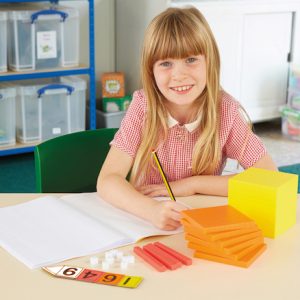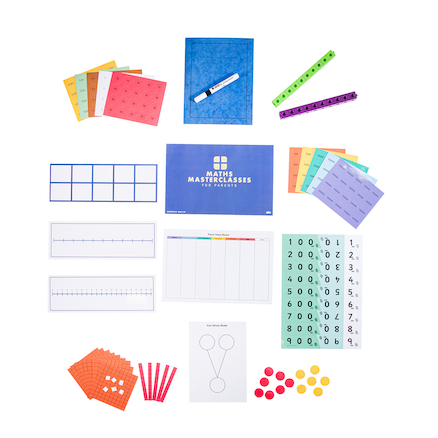In this blog, Nicol Winfield, a teacher and mastery specialist, considers practical ways in which parents/carers can help their children with maths learning at home.

The approaches staff in schools take to teaching mathematics to children are very different to those our teachers took when teaching mathematics to us, right?
In fact, some approaches today can appear quite simply baffling! So when trying to support your children to engage with the mathematics learning sent from school, you may have felt some frustration. Let me reassure you that this feeling is normal, and many parents have experienced it, as much now as ever before.
It has been proven that the biggest barrier to helping children with mathematics is parents’ confidence in their own subject knowledge – so what can we do about it?
With support from the Education Endowment Foundation, this short blog aims to provide some ‘top tips’ to support you as a parent or carer and hopefully assure you that you are doing the most amazing job during this difficult time.
With younger children
- Make maths a part of your everyday routine – of tidy up time, of meal time. Count together, compare quantities of food or capacity of cups, measure items, sort items, share them between yourselves and refer to the time of day. As well as questioning your children, model your own thinking out loud because it is so important that they learn from how you plan, monitor and evaluate tasks.
- Share stories together. There are many opportunities to talk mathematics in familiar stories. (This site offers some recommendations where the links to mathematics are clear.)
- Most importantly, play! Play board games, particularly ones with numbers that increase by one and are equally spaced. And talk whilst doing so – the mathematical vocabulary will quickly become a natural feature of conversation.
With older children
- Support your children to set goals, plan and manage their time, effort and emotions because ultimately, we want our children to become self-regulated learners who are aware of their strengths, weaknesses and the strategies they use to learn. Note, helping your children to develop this awareness can be more beneficial than directly supporting them with mathematical tasks.
- Protect a space for them to engage with their learning.
- Promote opportunities for your children to retrieve the knowledge they have previously learnt, using online materials or school exercise books.
- Encourage regular practise. If anything, encourage your children to practise their times tables online or on paper. Evidence shows our children need to develop a fluent recall of mathematical facts, including times tables.
- If engaging with new content, provide worked examples of concepts using credible sites such as the National Centre for Excellence in the Teaching of Mathematics (NCETM).
Please note that you do not need to actively seek out anything extra. What your school is providing is what they feel is enough to continue your child’s learning and development at this time.
TTS also offer a Maths Masterclass Parent Pack which contains all of the maths essentials for using at home.
With thanks to Nicol Winfield for writing this blog.
Nicol is a Teacher and Maths Lead at Wyndham Primary Academy, Maths Evidence Lead for the Derby Research School and Teaching for Mastery Specialist for the East Midlands West Maths Hub



